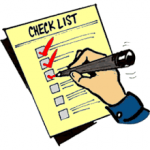Travel light!
Avoid taking more than one checkable suitcase and a carry-on. You’ll be carrying your own luggage, and likely be living, partly, out of your suitcase, on the base. You’ll be issued uniforms as work clothes, but your other garments are your own responsibility. DON’T TAKE VALUABLES.
Documents
You must have:
- a copy of the picture page of your passport,
- your medical certificate,
- proof of medical insurance coverage
We also recommend that you carry:
- a list of your prescribed medications.
- a copy of your prescriptions.
- a record of charge-card numbers, safely stowed away from the originals.
Packing check-list – Essentials.
- Toilet paper
- (during Covid) Your own masks.
- 3 rapid antigen Covid test kits ( in case you become ill)
- your own underwear, T-shirts, handkerchiefs, and any clothes that you wish to wear after work and off the base. (Women need skirts on Shabbat, in Orthodox areas.)
- closed-toe shoes, suitable for a work site
- a mobile phone with WhatsApp installed for receiving group communications.
- in winter – rainwear, and waterproof footwear
- in spring and summer – sun hat
- a robe for getting to and from the showers; (they may not be very close to your bunk).
- soap, shampoo, towels; washcloths for a first-dry are useful, since they’ll dry more quickly than a wet towel, particularly in a damp winter environment
- scuffies for the shower (“rubber” sandals or “flip flops”)
- toiletries, prescription medications with copy of generic prescription
- medical devices (e.g. 220 v CPAP with extension cord and Israeli plug),
- Tylenol, Band-Aids, Imodium and any personal medication (Enough to include any quarantine period)
- sunblock; insect repellent; spare eyeglasses with prescription, sunglasses
- a pair of cot-sized or single sheets, pillowcase and small pillow. You will be issued blankets or a sleeping bag.
- Laundry detergent, clothespins and string for clothesline
Laundry.
You will usually get clean uniforms as needed but you are on your own for other laundry. Easy wash and-wear clothes are essential. Some bases have a washing machine and dryer, but most do not.
Laundry detergent is essential too; clothespins and string for clothesline can be useful, if you don’t find some already on the base. (Optionally some experienced Sar-Elniks carry a small plastic container as a laundry basin. That’s not as crazy as it sounds. It doesn’t weigh much and can be filled with socks, underwear etc. in your luggage. And it’s cheap enough to leave behind if you don’t want to carry it back home.)
Packing Checklist – Optional
- work gloves, rubber or plastic gloves, may be useful.
- Scotch tape, duck tape, elastic bands, small scissors
- if you use a hair-dryer or electric razor, remember that Israel uses 220 volts; you must have 220 volt appliances or a transformer. The plug prongs are different too. so buy an adapter for Israel
- A small mirror can be useful; there are usually no electric outlets in the washrooms.
- a small combination lock for your locker
- a small flashlight, a camera
- a small portable radio
- ear plugs for yourself, and if you snore, (who doesn’t?) for your barrack-mates
- In spring and summer – shorts, bathing suit, sandals.
Insurance.
You are required to have adequate health insurance. Sar-El provides no hospital/medical insurance coverage for volunteers, whether on or off the base. So, if necessary, purchase appropriate additional coverage, since adequate health insurance is essential.
Canadian Medicare coverage, alone, is not adequate.
Medical travel insurance including Covid medical and quarantine is mandatory. Trip cancellation and interruption insurance is highly recommended.
You must have access to sufficient funds to cover medical emergencies, since your insurance may not pay up front. Check with your insurance provider on their payment arrangements for service in Israel.
Money.
Credit cards, particularly VISA, are widely accepted. Traveler’s cheques can be a nuisance, particularly Canadian-dollar cheques. But many volunteers don’t bother with traveler’s cheques at all, using automatic teller machines (ATMs) instead. Bank Hapoalim, and other ATMs too, accept Canadian ATM cards affiliated with PLUS or CIRRUS systems; insert your card and the screen message appears in English if that’s the “language of your card” back home. You withdraw money from your Canadian account, in shekels, and your account is automatically debited in Canadian dollars at a correct exchange rate and with a service charge. And ATMs are “open” when banks are closed.
Travel with a second credit card in case the first one is lost, damaged or compromised. Separate your day-to-day cash and credit card from your important papers, second credit card and balance of your cash.
Telephones.
Many bases no longer have pay phones, since Israelis are heavy cell phone users. But don’t ask your madricha (see below) to use her cell phone. It’s advisable to rent your own. You can arrange delivery of a cell phone or SIM Card in Canada, before you leave for Israel. Check with the Sar-El Canada office for information. In Israel, you don’t pay for incoming calls on an Israeli cell phone or SIM card.
Israeli pay phones, when available, use Telecards, and other similar cards, which you can buy at the airport and, sometimes, more cheaply, at the base canteen. But remember many bases don’t have pay phones.
To Canada or the US, dial 013-1, or 014-1, followed by the area code and the number. This works for both Telecard and cell-phone calls. Or use the special calling arrangements provided by your Canadian long distance supplier for calls to Canada.
Internet & Email
Note there is no WiFi or other Internet access on the base however access to the Internet & email may be necessary to receive your Covid test results and is required to complete your ArriveCAN forms.

